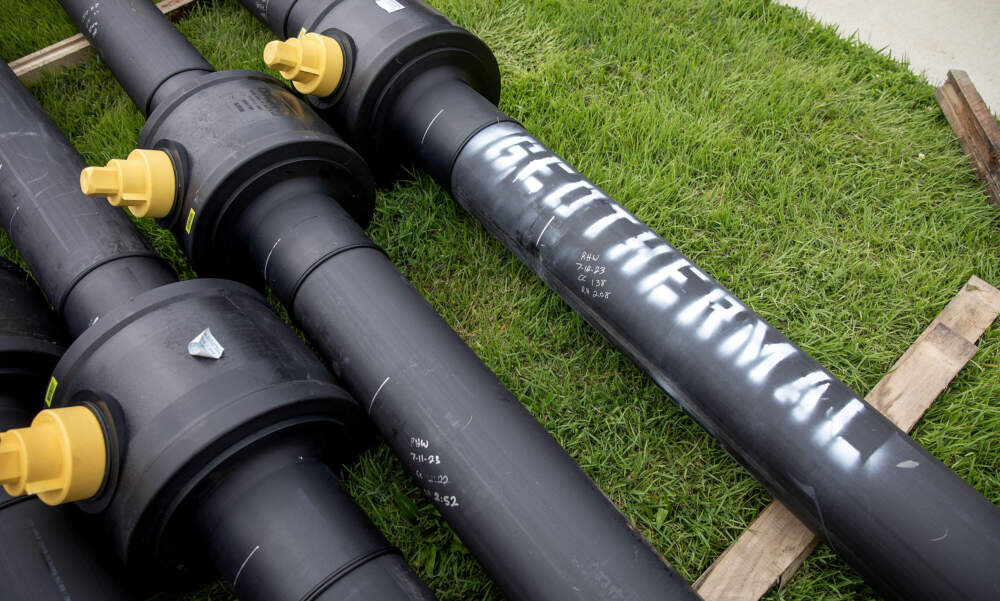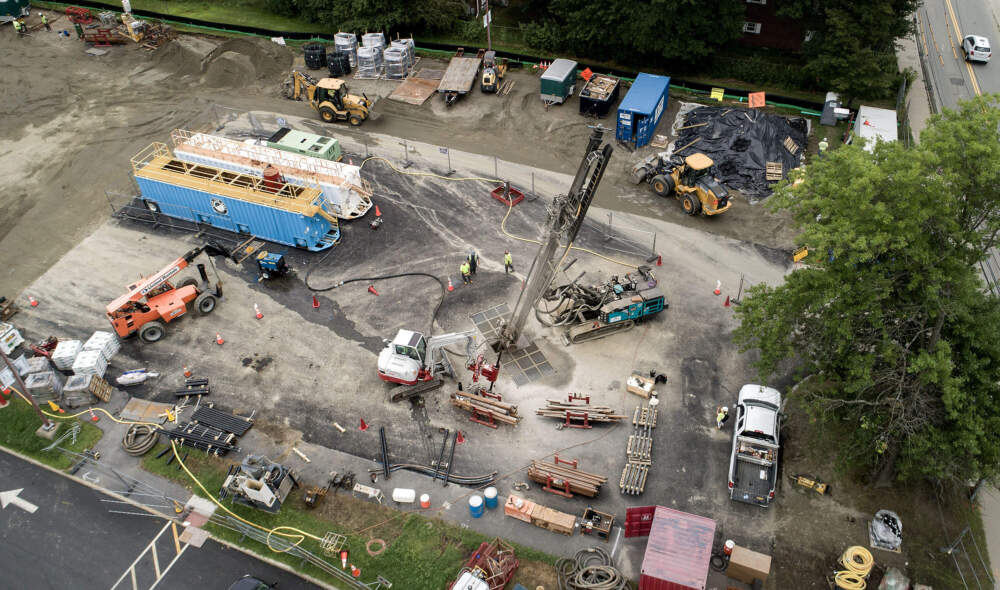Advertisement
Gas utility cancels networked geothermal pilot in Lowell

National Grid has canceled a major geothermal heating project in Lowell.
The decision is a blow for environmentalists, who hope geothermal networks will help Massachusetts meet its ambitious climate goals quickly, and ensure low-income residents have equal access to this cleaner, more efficient technology.
The geothermal project — one of three pilot programs to receive state approval — would have brought heating and cooling to 31 buildings in Lowell, including several low-income households and part of the UMass Lowell campus. The project broke ground in April 2023, but was quietly canceled last December after National Grid said it was no longer economically viable.
“We have made the difficult decision not to move forward with the proposed pilot program in Lowell,” National Grid spokeswoman Christine Milligan wrote in an email. “The cost per customer for this project was unfortunately much too high.”
According to Milligan, the price of the project spiked over the last few years because of inflation, rising supply costs and “underground geologic conditions in Lowell that made the infrastructure more costly.” She also said executing a large construction project in an “undeveloped market” was a challenge.
The decision won't affect National Grid's other geothermal pilot, Milligan said. This project, a partnership with the Boston Housing Authority, involves several multi-family homes and is expected to be more cost efficient.

Networked geothermal systems use underground pipes and electric heat pumps to exchange heat with the earth. In the winter, the system pulls heat stored hundreds of feet below ground to warm buildings in the network, and in the summer, it sends heat back underground to keep indoor spaces cool.
Individual buildings can use geothermal heat pumps to exchange heat with the earth, but systems that link buildings together are much more efficient. In fact, advocates say networks like this are among the most energy efficient ways to heat and cool buildings.
Geothermal heating systems work well, but installing individual systems is expensive. Drilling a single borehole in a backyard can set the homeowner back tens of thousands of dollars.
Enter gas utilities: These companies have a lot of experience digging holes and laying pipes. Plus, their business model involves spreading out the cost of expensive infrastructure over long periods of time.
Advertisement
What’s more, advocates argue that having utilities build these projects can help ensure low-income customers aren’t left footing the bill for systems with aging gas pipelines, while more affluent residents shift to electric heat pumps.

In Massachusetts, the two big gas utilities, National Grid and Eversource, have embraced geothermal networks. They see them as a potential growth opportunity and a mechanism for meeting the state’s rules aimed at slashing climate pollution.
The state’s Department of Public Utilities approved Eversource’s plan for a pilot project in Framingham in 2021, and approved National Grid’s plans for projects in Lowell and Boston in 2021 and 2024. Eversource’s Framingham project is fully constructed and operating. The pilot is set to last two years, and the company is now collecting data about energy use, cost and customer satisfaction.
“So far, the technical performance has been steady,” said William Hinkle, a company spokesperson. “The system is functioning as hoped and keeping folks warm.”
Hinkle declined to comment on National Grid’s decision to end the Lowell project, but said the construction timeline for Eversource’s project meant the company didn’t experience the same financial challenges.
Networked geothermal isn’t the only clean energy industry facing headwinds related to broader economic forces. Several offshore wind developers along the East Coast have sought to renegotiate signed contracts after inflation, rising costs and supply chain issues ballooned the price tags of their projects.
Kyle Murray, Massachusetts program director at the nonprofit Acadia Center, said while it’s “disappointing” that National Grid pulled the plug on the Lowell project, he doesn’t think the model of utility-led networked geothermal is doomed.
“Doing new and innovative things is hard and things don’t always go smoothly,” he said. “Part of the reason the commonwealth is currently pursuing them as pilot projects is exactly so that we can pace progress accordingly and learn lessons.”
Mulligan of National Grid said the company remains “committed to studying networked geothermal and [sees] it as a potential solution as we work to transition from fossil fuels.” She added that even though the pilot didn’t work, the company learned a lot and can apply those lessons to future projects.
This article was originally published on February 06, 2025.
